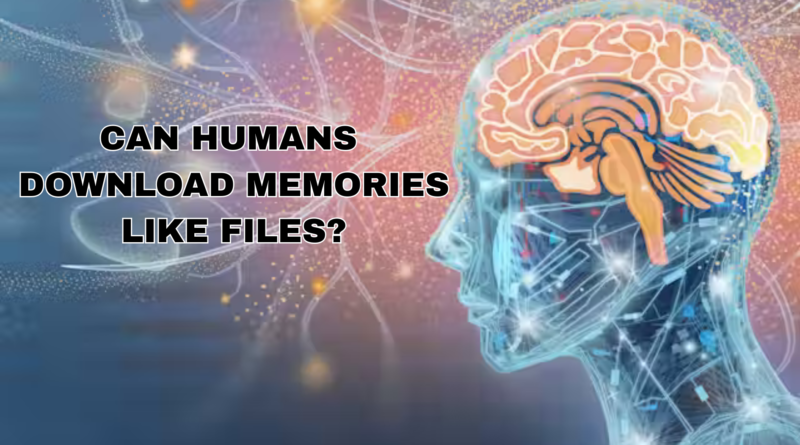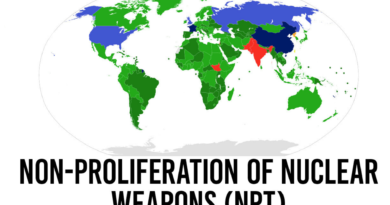CAN HUMANS DOWNLOAD MEMORIES LIKE FILES?
For thousands of years, people have dreamed of saving thoughts and memories just like we save books, photos, or songs. In science fiction movies, we often see humans connecting their brain to a computer and downloading experiences as if they were files. But is this really possible in real life? Can humans one day download memories like we download a picture or a song from the internet? Let us explore this idea step by step.
What Are Memories?
Before we think about downloading them, we need to understand what memories really are. Memories are not like videos stored in one place inside our brain. They are made of patterns of electrical signals and chemical connections between billions of brain cells, called neurons. Every time you remember your first day at school or the taste of your favorite food, your brain is re-creating those patterns. So, a memory is not just a file—it is a living network of signals that your brain rebuilds each time you recall it.
How Computers Store Data
Computers save data in a very different way. A computer stores files as 1s and 0s—tiny bits of digital information. These files never change unless you edit them. Human memory, however, is not fixed. When you remember something, your brain can slightly change the memory. This is why people sometimes remember the same event differently. So, copying memories to a computer is not as simple as copying a file. It would mean translating very complex brain patterns into digital code.
Current Research
Scientists are already trying to understand how to read brain activity. Using brain scans and electrodes, researchers can track which parts of the brain light up when you think of an object, a sound, or a feeling. Some experiments have even allowed scientists to reconstruct rough images of what a person is seeing, by translating brain signals into pictures. Other studies have tried to help patients with memory problems by creating brain implants that support memory storage.
For example, scientists have tested memory prosthetics in animals and humans. These devices record brain signals when a person learns something new, and later replay those signals to help the person remember. This shows that it might be possible to “write” information into the brain. But this is still far from downloading a complete memory like a movie file.
Challenges in Downloading Memories
There are many challenges to downloading memories like files:
Complexity of the Brain – The human brain has about 86 billion neurons, each connected to thousands of others. To download a memory, we would need to map out every detail of those connections.
Unique to Each Person – Your memory of your birthday is not the same as someone else’s. Memories are shaped by emotions, senses, and personal meaning. Even if we could copy the raw data, would it still feel the same for another person?
Storage Size – A single human brain is estimated to store up to 2.5 petabytes of information. That is equal to millions of gigabytes. Storing all that data in a computer would require massive systems.
Privacy and Ethics – If memories could be downloaded, who would control them? Could someone steal your memories like hackers steal passwords? Would governments or companies have the right to access them? These are big questions for the future.
Possible Benefits
If one day we do succeed in downloading memories, the benefits could be huge. Students could learn new skills instantly, like downloading a language or a musical talent. Doctors could save the experiences of expert surgeons and share them with new doctors. Families could preserve the memories of loved ones forever, even after they pass away. People with Alzheimer’s or brain injuries could restore their lost memories.
Possible Dangers
But there are also dangers. If memories can be downloaded, they could also be uploaded. This means someone might place fake memories into your brain. You might no longer know which memories are real and which are artificial. Memory hacking could become more dangerous than computer hacking. Also, if people can download skills instantly, traditional education, effort, and practice might lose their value. Human identity itself might change, because our memories are a big part of who we are.
Science Fiction vs Reality
Movies like The Matrix or shows like Black Mirror often show people downloading and uploading memories. These ideas inspire scientists, but real technology is still far behind. Right now, we can read only small pieces of brain activity, and even that is not fully accurate. Turning a whole memory into a file and then placing it into another brain might take decades, or even centuries, if it is possible at all.
The Road Ahead
Neuroscience, artificial intelligence, and brain-computer interfaces are advancing fast. Companies like Neuralink are already working on brain implants that can connect humans to computers. Today these are mainly for medical use, b
ut in the future, they may allow more advanced memory recording. Perhaps one day, just like we back up our phones, we may be able to back up our minds.
Final Thoughts
So, can humans download memories like files? For now, the answer is no. Memories are too complex, personal, and dynamic to be copied so easily. But science is moving forward, and what seems impossible today may become reality tomorrow. If it happens, it will change education, medicine, and even human identity forever. The real question may not be can we do it, but should we do it. Because once memories become files, our sense of self, privacy, and reality may never be the same again.




